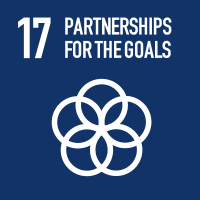Studying at the University of Verona
Here you can find information on the organisational aspects of the Programme, lecture timetables, learning activities and useful contact details for your time at the University, from enrolment to graduation.
Study Plan
This information is intended exclusively for students already enrolled in this course.If you are a new student interested in enrolling, you can find information about the course of study on the course page:
Laurea magistrale in Languages, Literatures and Digital Culture - Enrollment from 2025/2026The Study Plan includes all modules, teaching and learning activities that each student will need to undertake during their time at the University.
Please select your Study Plan based on your enrollment year.
1° Year
| Modules | Credits | TAF | SSD |
|---|
1st foreign language2nd foreign language1st foreign literature2nd foreign literatureOne module among the following (philology must be related to one of the chosen languages)Germanic philology LM. Manuscript and Textual Studies
2° Year It will be activated in the A.Y. 2025/2026
| Modules | Credits | TAF | SSD |
|---|
One modue between the following3 modules among the following (related to the language and literature chosen)Digital lab| Modules | Credits | TAF | SSD |
|---|
1st foreign language2nd foreign language1st foreign literature2nd foreign literatureOne module among the following (philology must be related to one of the chosen languages)Germanic philology LM. Manuscript and Textual Studies
| Modules | Credits | TAF | SSD |
|---|
One modue between the following3 modules among the following (related to the language and literature chosen)Digital labLegend | Type of training activity (TTA)
TAF (Type of Educational Activity) All courses and activities are classified into different types of educational activities, indicated by a letter.
Romance Philology LM (2024/2025)
Teaching code
4S02555
Teacher
Credits
6
Language
Italian
Scientific Disciplinary Sector (SSD)
L-FIL-LET/09 - ROMANCE PHILOLOGY AND LINGUISTICS
Period
I semestre (Area Lingue e letterature straniere) dal Sep 23, 2024 al Dec 21, 2024.
Courses Single
Authorized
Learning objectives
By reading and analyzing literary texts written in diverse romance languages, the course of Romance Philology allows students to acquire and develop fundamental notions and knowledge in the fields of philology, historical linguistics and literature. It allows them to refine their ability to interpret and comprehend literary texts and to elaborate important elements of historical and cultural critical judgement. At the end of the course students will be able to autonomously confront with different levels of analysis to be applied to examined texts. They will also be able to prove their knowledge of disciplinary lexicon and to properly express the main contents of the course.
Prerequisites and basic notions
No prerequisites are required apart from the desirable interest and curiosity towards the subject matter. A knowledge, even elementary, of Latin is preferable, but not essential.
Program
The Legend of the Grail in Medieval Romance Literature. The course will study the developments of the legend of the Holy Grail, born with the medieval literature of the Arthurian cycle. The Conte du graal by Chrétien de Troyes, in Old French, and the Demanda del Santo Grial, in Old Castilian, will be especially examined. Particular attention will be paid to translation problems and hermeneutic questions that will allow students to follow the metamorphoses of the Grail in the history of literature, recognizing in it an object of profound religious desire that has often ignited the imagination of writers.
Bibliography
- Handout of texts on Moodle
- Lecture notes
A novel (in Italian translation) chosen among:
1) Chrétien de Troyes, Perceval (any Italian translation,I suggest Mariantonia Liborio in Il Graal. I testi che hanno fondato la leggenda, Milano, Mondadori (I Meridiani), 2005)
2) Robert de Boron, Il libro del Graal, Milano, Adelphi, 2005
3) La ricerca del santo Graal, in Il Graal. I testi che hanno fondato la leggenda, Milano, Mondadori (I Meridiani), 2005 or in Artù, Lancillotto e il Graal. La ricerca del Santo Graal. La morte di Re Artù (Vol. 4), Torino, Einaudi, 2023
One essay of your choice between (both essays can be found on Moodle):
- J. Dufournet, Présentation au volume Perceval, Paris, Flammarion, 2012 (for French students)
- J. R. Trujillo, Introducción a La Demanda del Santo Grial, Universidad de Alcalá, 2017 (for Spanish students)
Bibliography
Didactic methods
Frontal and conversational lessons (36 hours). The moodle platform is used for active communication between teachers and students, to provide further support material and to report any opportunities for in-depth study related to the discipline (conferences, seminars, presentations, etc.). Non-attending students will possibly be supported by the teacher in the study of previously agreed reference texts.
Learning assessment procedures
The exam is oral.
Evaluation criteria
The candidate's preparation will be assessed both with questions of a general nature, and through the reading and analysis of one or more texts among those read and commented on during the course, or which are in any case part of the bibliography; the candidate will be asked to read on a photocopy or volume provided by the examiner. General questions may precede or follow the reading and analysis of the texts. The vote will be the numerical synthesis not only of the essential knowledge of the contents, but also of the candidate's ability to organize the exhibition and to use the required technical language.
Exam language
Italiano.



